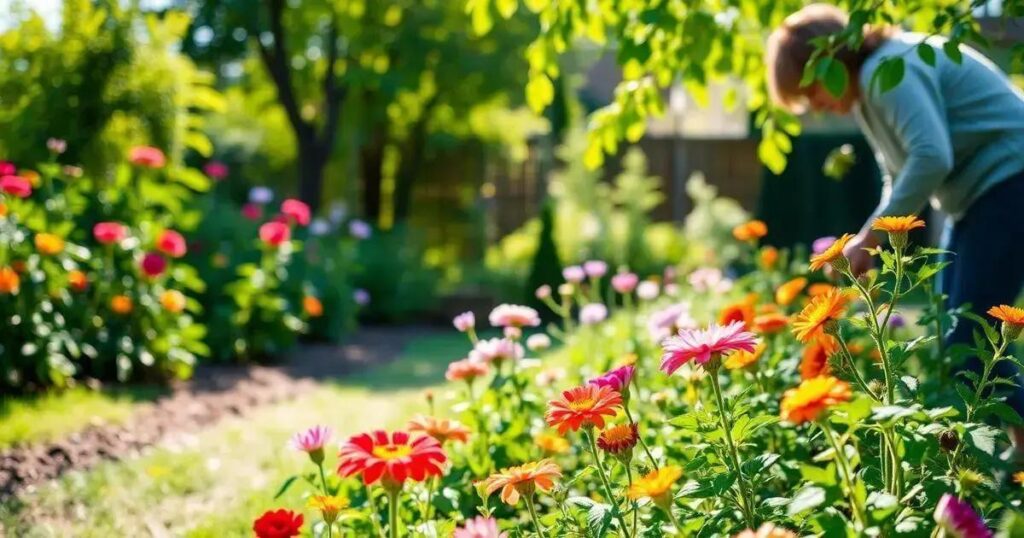The benefits of gardening for physical and mental health include improved fitness, reduced stress and anxiety, enhanced mood, and the therapeutic effects of connecting with nature through creating and nurturing a garden.
Gardening offers numerous benefits for both physical and mental health. Engaging with soil and plants can boost your mood, reduce stress, and increase your physical activity. In this article, we will delve into how gardening enhances physical health, explores the mental health benefits of growing plants, discusses gardening as a therapeutic practice, and provides tips for starting your garden journey.
Enhancing Physical Health Through Gardening
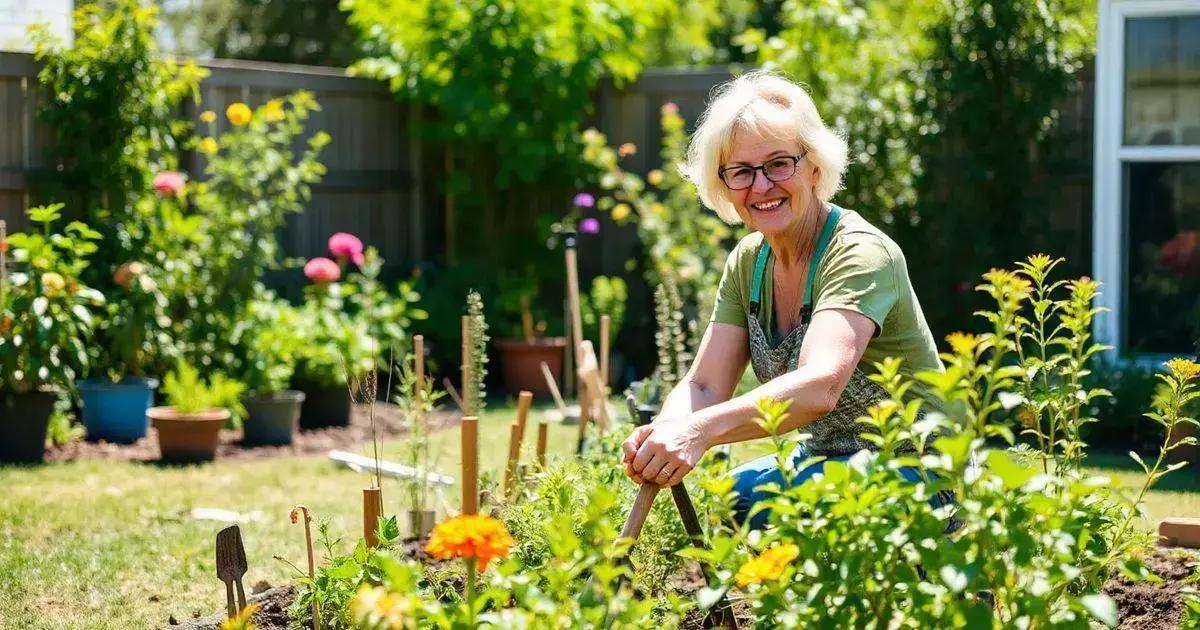
Gardening is not just a hobby; it significantly enhances physical health. Engaging in gardening activities can improve your overall fitness in several ways.
Physical Activity
Spending time in the garden is a great way to incorporate exercise into your daily routine. Activities such as digging, planting, weeding, and watering can provide a good workout, elevating your heart rate and helping to build strength and endurance.
Benefits for Muscle and Bone Health
Regular gardening can lead to stronger muscles and bones. The repetitive actions involved, such as lifting pots and digging soil, can build muscle mass and improve bone density, which is essential as we age.
Connection to Nature
Gardening also encourages people to spend time outdoors. This connection to nature not only helps you stay physically active but also exposes you to sunlight, which is vital for vitamin D synthesis, promoting strong bones and a healthy immune system.
Stress Relief and Its Physical Impacts
Moreover, gardening can lower levels of stress hormones in the body, which has a knock-on effect of improving your physical health. Reduced stress enhances heart health and aids in managing conditions like hypertension.
In summary, gardening offers numerous physical health benefits that help you maintain an active lifestyle while enjoying the therapeutic effects of nature.
The Mental Health Benefits of Growing Plants
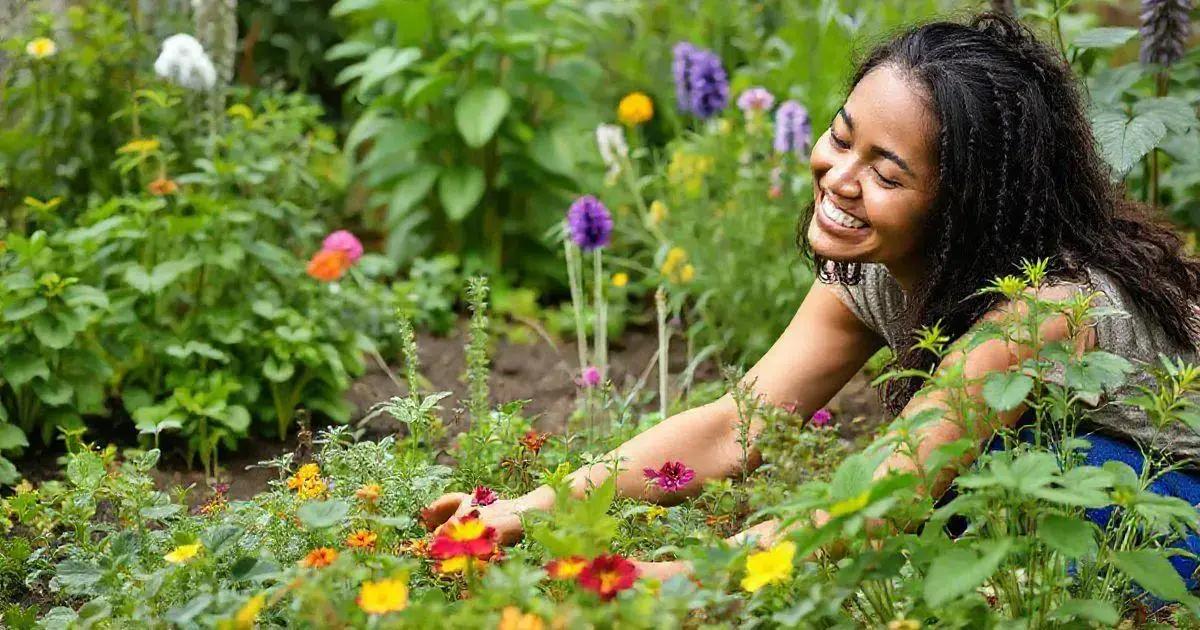
Growing plants can offer significant mental health benefits that enhance your overall well-being. Engaging in gardening is more than just a pleasant pastime; it can serve as a powerful tool for stress reduction.
Reducing Stress and Anxiety
When you spend time nurturing plants, it can help lower your stress levels. The act of gardening encourages mindfulness, allowing you to focus on the present moment. This meditative quality can significantly decrease feelings of anxiety and promote relaxation.
Improving Mood
Research suggests that exposure to nature and gardens can improve mood. The simple act of caring for a plant can create a sense of purpose and lead to feelings of happiness. Witnessing the growth and beauty of your plants can also result in a natural release of endorphins, enhancing your overall emotional state.
Building Community and Connection
Gardening can also foster a sense of community. Joining a gardening club or working on community garden projects can establish social connections. These interactions can combat feelings of isolation and loneliness, further boosting your mental health.
Fostering Creativity and Growth
As you grow different plants, you exercise your creativity. Experimenting with colors, shapes, and arrangements allows self-expression and personal growth. This creative outlet not only improves mental clarity but can also enhance your problem-solving skills.
Incorporating plants into your life, whether through gardening or simply caring for indoor plants, can lead to a happier and healthier state of mind.
Gardening as a Form of Therapy
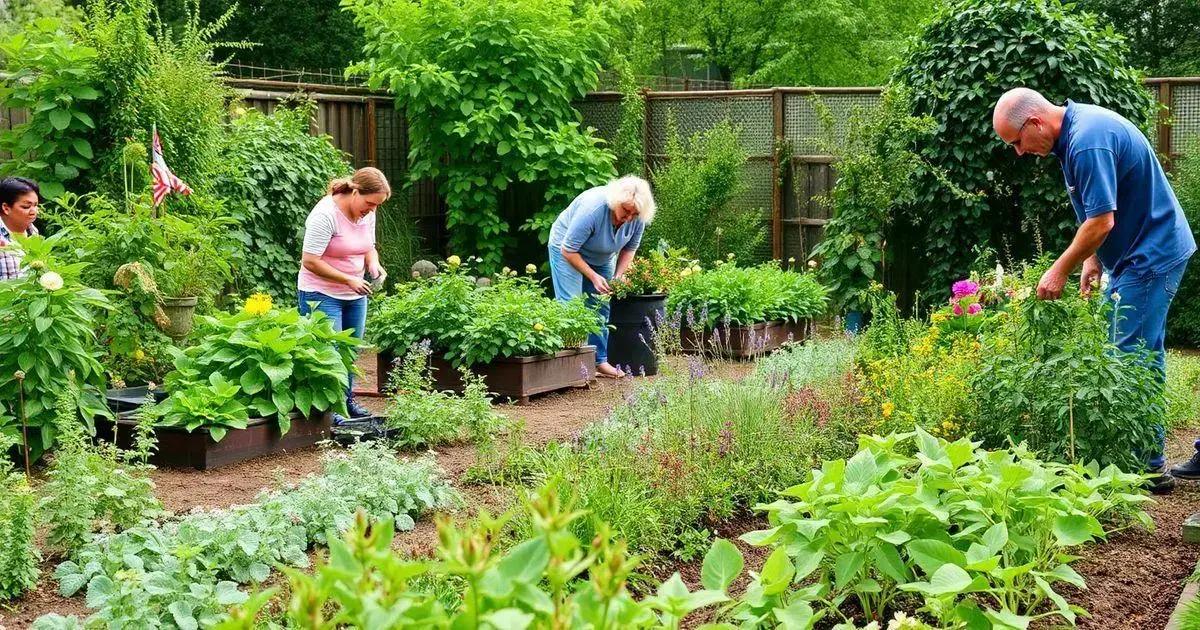
Gardening has emerged as a powerful form of therapy that promotes healing and wellness. Many therapists now incorporate gardening into treatment plans for individuals facing various challenges.
Therapeutic Benefits
The act of planting and caring for a garden provides a sense of responsibility and achievement. This can be particularly helpful for individuals experiencing depression or anxiety. Engaging with nature can alleviate symptoms and create a calming environment that fosters mindfulness.
Mindfulness and Focus
Gardening encourages you to be present in the moment. As you dig in the soil and tend to plants, you can develop a mindful awareness that helps distract from negative thoughts and worries. The focus required in gardening can provide a healthy escape from daily stressors.
Physical Activity and Well-Being
Moreover, gardening is a form of physical exercise that can boost your endorphins, which are chemicals in the brain responsible for feelings of happiness. The combination of physical activity with the calming effects of nature can be especially beneficial for emotional regulation.
Building Connections
Group gardening activities can enhance social connections and reduce feelings of isolation. Many community gardens serve as support networks for those struggling with mental health issues. These connections can foster a sense of belonging and improve overall emotional well-being.
In summary, gardening is not only a way to grow plants but also a meaningful form of therapy that can benefit mental health.
Tips for Starting Your Garden Journey
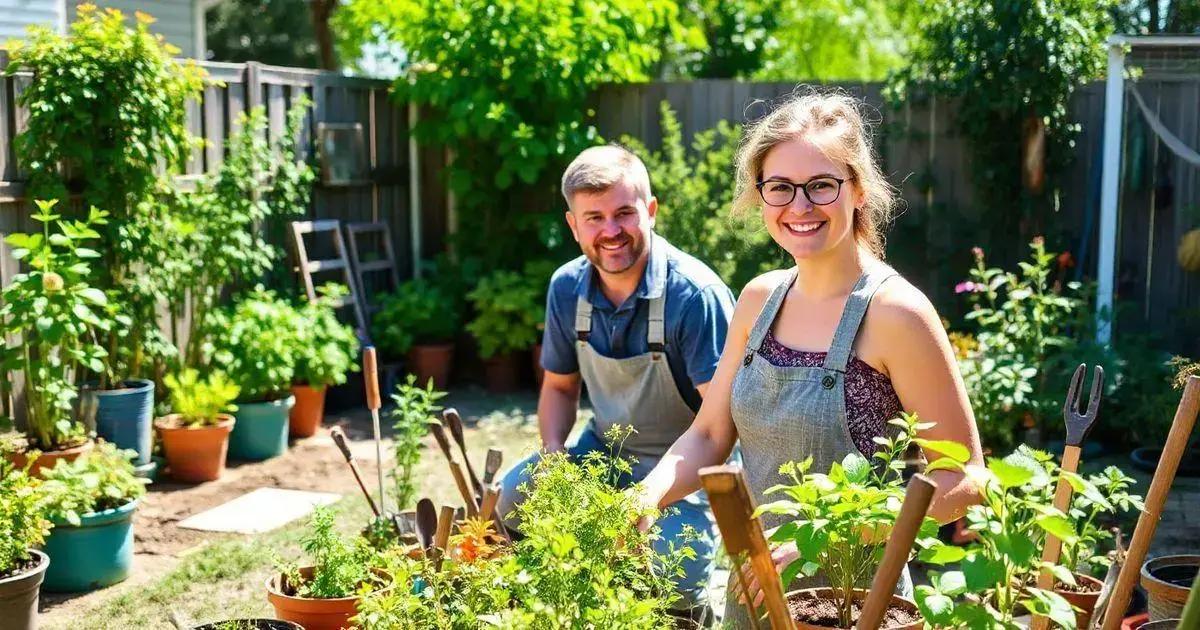
Starting your garden journey can be both exciting and rewarding. Here are some tips to help you get started on the right foot.
Choose the Right Location
First, select a location that gets adequate sunlight. Most plants need at least 6-8 hours of sunlight daily. Look for spots in your yard or balcony where the sun shines the brightest.
Start Small
If you’re new to gardening, it’s wise to start small. Consider beginning with container gardening or a small patch in your yard. This approach allows you to learn without becoming overwhelmed.
Select Easy-to-Grow Plants
Pick plants that are easy to grow, such as herbs or hardy flowers like marigolds. These plants generally require less care and will help build your confidence as a gardener.
Prepare Your Soil
Good soil is vital for healthy plants. Make sure to test the soil for pH and nutrients. You can improve poor soil by adding compost or organic matter, which provides essential nutrients for your plants.
Water Wisely
Understand your plants’ watering needs. Over-watering or under-watering can harm them. It’s usually best to water in the early morning or late afternoon to avoid evaporation.
Keep Learning
Gardening is a journey of learning. Join local gardening clubs or online communities where you can exchange tips and experiences. Over time, you will become more skilled and knowledgeable.
With these tips, you’ll be well on your way to creating a flourishing garden that nourishes both your body and mind.
Discover the Transformative Power of Gardening
Gardening offers a wealth of benefits that extend beyond just planting seeds. It enhances physical health through increased activity, while also providing essential mental health benefits, such as reduced stress and improved mood.
Engaging with nature through gardening acts as a form of therapy, fostering creativity and social connections, which can lead to deeper emotional well-being. By following practical tips for starting your gardening journey, anyone can cultivate a rewarding and fulfilling practice.
In essence, whether you’re seeking a new hobby or looking to improve your health, gardening can be a transformative experience that enriches your life in multiple ways.
FAQ – Frequently Asked Questions About the Benefits of Gardening for Physical and Mental Health
What are the physical health benefits of gardening?
Gardening provides physical activity, strengthens muscles and bones, and enhances overall fitness and endurance.
How does gardening improve mental health?
Gardening reduces stress, improves mood, and fosters mindfulness, helping to combat anxiety and depression.
Can gardening act as a form of therapy?
Yes, gardening can serve as a therapeutic activity that offers emotional healing and encourages creativity while promoting social connections.
What are some tips for beginners starting their garden?
Start small, choose an area with good sunlight, select easy-to-grow plants, prepare your soil, and ensure you water wisely.
Is it necessary to have a large space to start gardening?
No, gardening can be done in small spaces using container gardens, making it accessible for anyone regardless of yard size.
How can I learn more about gardening?
Consider joining local gardening clubs, attending workshops, or exploring online resources to gain knowledge and share experiences with others.

